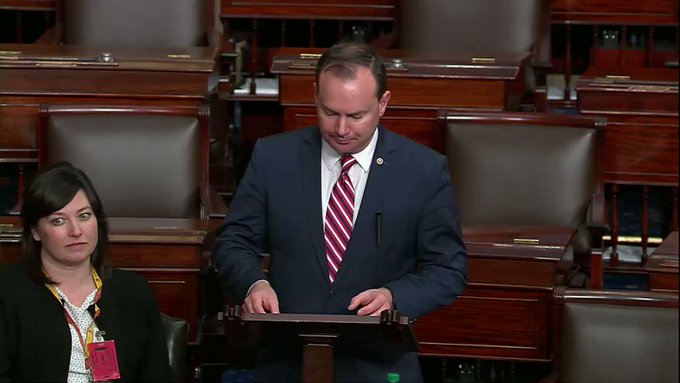Senate Passes Short-Term Extension of Surveillance Powers under (FISA) and the (PATRIOT) Act
The Senate on Monday unanimously passed a 77-day extension of the federal government’s surveillance powers under the Foreign Intelligence Surveillance Act (FISA) and the PATRIOT Act.
Which technically expired on Sunday, March 15th. The Senate-passed bill is a clean extension that would retroactively authorize surveillance activities back to the expiration date, and will now head to the House for consideration in the near future.
The Senate originally planned to take up a bipartisan bill, the USA FREEDOM Reauthorization Act of 2020 (H.R. 6172), that passed the House on a bipartisan 278-136 vote on Wednesday, March 11th. But the compressed timeline caused by the expiration, along with the Senate’s intent to consider a coronavirus bill once it’s received from the House, made a full-fledged surveillance debate impractical at the moment.
The House-passed bill will be considered by the Senate at a time to be determined before the short-term extension expires, and under the terms of a deal announced by Sen. Mike Lee (R-UT), the Senate’s debate will feature consideration of six amendments to the House bill.Mike Lee?@SenMikeLee
We locked in a deal to get real debate and actual votes on amendments that will fix the FISA program so that the spying that happened in 2016 never happens again. It shouldn’t be this difficult to get votes on amendments. The American people expect us to vote.

734Twitter Ads info and privacy331 people are talking about thisMike Lee?@SenMikeLee
We locked in a deal to get real debate and actual votes on amendments that will fix the FISA program so that the spying that happened in 2016 never happens again. It shouldn’t be this difficult to get votes on amendments. The American people expect us to vote.

734Twitter Ads info and privacy331 people are talking about this
With FISA off the Senate’s docket for now, it will be able to take up the coronavirus legislation once the technical corrections to it are resolved by the House.


